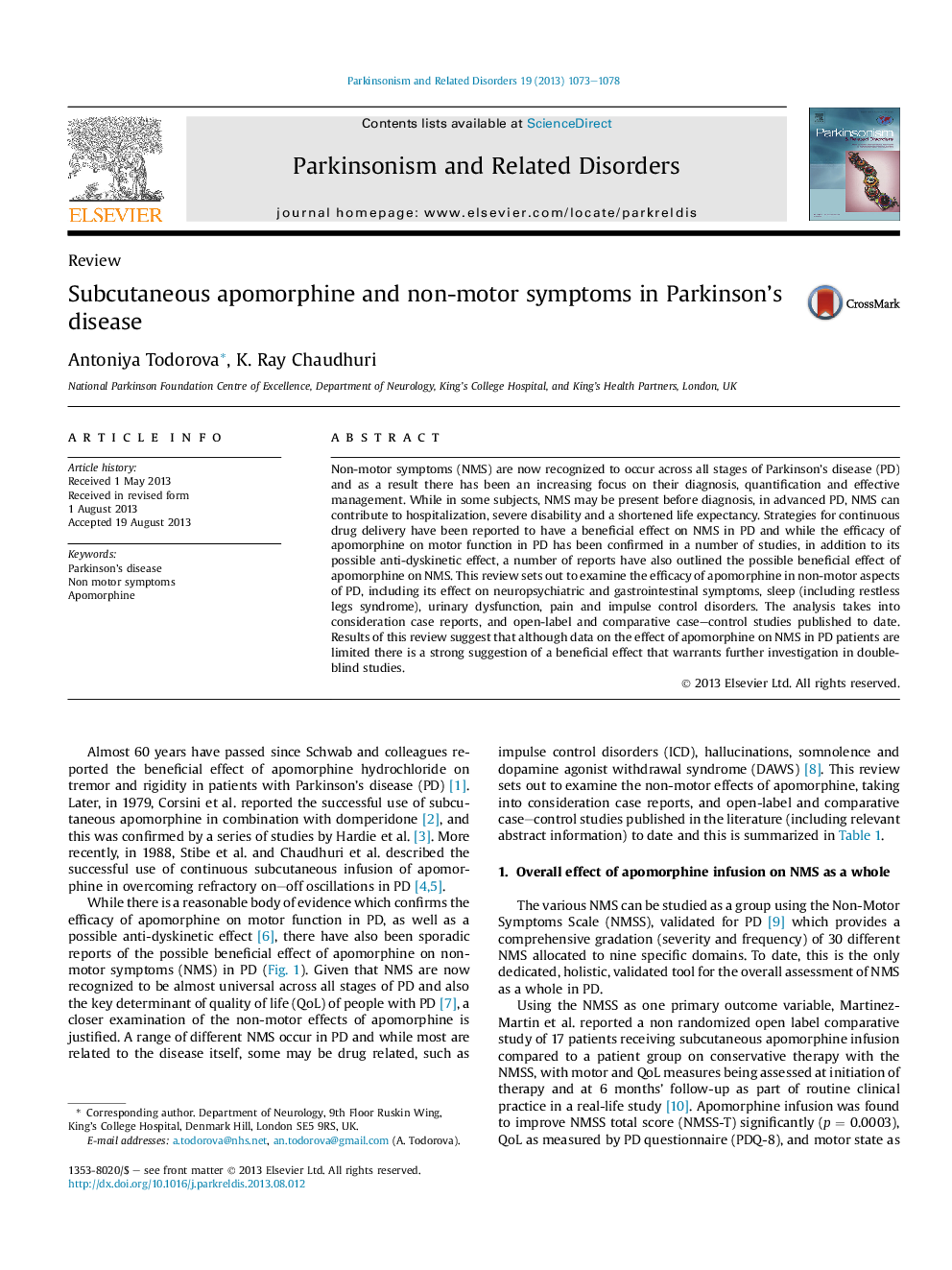| Article ID | Journal | Published Year | Pages | File Type |
|---|---|---|---|---|
| 10745435 | Parkinsonism & Related Disorders | 2013 | 6 Pages |
Abstract
Non-motor symptoms (NMS) are now recognized to occur across all stages of Parkinson's disease (PD) and as a result there has been an increasing focus on their diagnosis, quantification and effective management. While in some subjects, NMS may be present before diagnosis, in advanced PD, NMS can contribute to hospitalization, severe disability and a shortened life expectancy. Strategies for continuous drug delivery have been reported to have a beneficial effect on NMS in PD and while the efficacy of apomorphine on motor function in PD has been confirmed in a number of studies, in addition to its possible anti-dyskinetic effect, a number of reports have also outlined the possible beneficial effect of apomorphine on NMS. This review sets out to examine the efficacy of apomorphine in non-motor aspects of PD, including its effect on neuropsychiatric and gastrointestinal symptoms, sleep (including restless legs syndrome), urinary dysfunction, pain and impulse control disorders. The analysis takes into consideration case reports, and open-label and comparative case-control studies published to date. Results of this review suggest that although data on the effect of apomorphine on NMS in PD patients are limited there is a strong suggestion of a beneficial effect that warrants further investigation in double-blind studies.
Related Topics
Life Sciences
Biochemistry, Genetics and Molecular Biology
Ageing
Authors
Antoniya Todorova, K. Ray Chaudhuri,
